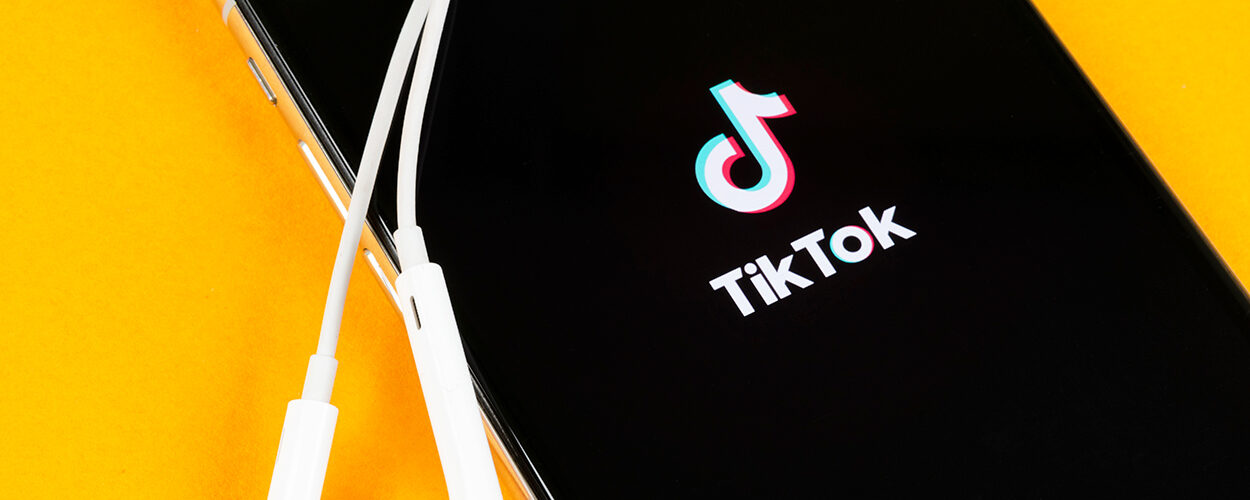This website uses cookies so that we can provide you with the best user experience possible. Cookie information is stored in your browser and performs functions such as recognising you when you return to our website and helping our team to understand which sections of the website you find most interesting and useful.
Business News Digital Legal Top Stories
US government welcomes latest proposals in Congress to address ongoing TikTok data concerns
By Chris Cooke | Published on Wednesday 8 March 2023

Another set of proposals have been introduced in US Congress in response to ongoing concerns about foreign governments having access to American user data via technology companies based in their countries, with the highest profile cause of concern at the moment being good old TikTok.
Politicians in multiple countries have expressed concern about what access the Chinese government may or may not have to TikTok user-data via its China-based owner Bytedance. For its part, TikTok continues to deny that there are any data security issues on its platform, though those denials don’t seem to be reassuring any of its critics so far.
Yesterday in the US Senate, Democrat Mark Warner and Republican John Thune introduced what they are calling the Restricting The Emergence Of Security Threats That Risk Information And Communications Technology Act – or the RESTRICT Act if you prefer.
According to an official statement, the proposed new laws would “comprehensively address the ongoing threat posed by technology from foreign adversaries by better empowering the Department Of Commerce to review, prevent and mitigate information communications and technology transactions that pose undue risk to our national security”.
Commenting on the proposals, Warner stressed that the RESTRICT Act is not just about empowering the US government to take action against Bytedance and TikTok. Although, he admitted, that is a particular priority right now.
“Today, the threat that everyone is talking about is TikTok and how it could enable surveillance by the Chinese Communist Party, or facilitate the spread of malign influence campaigns in the US”, he said.
“Before TikTok, however, it was Huawei and ZTE which threatened our nation’s telecommunications networks”, he noted. “And before that, it was Russia’s Kaspersky Lab, which threatened the security of government and corporate devices”.
“We need a comprehensive, risk-based approach that proactively tackles sources of potentially dangerous technology before they gain a foothold in America, so we aren’t playing Whac-A-Mole and scrambling to catch up once they’re already ubiquitous”.
The RESTRICT Act is not the first set of proposals seeking to address these concerns in Washington. Last week the Foreign Affairs Committee over in the House Of Representatives approved similar proposals recently introduced in that chamber of Congress.
They would require and empower the US President to put restrictions in place on a platform if it was shown it had transferred user data to any foreign person working for or under the influence of the Chinese government.
And last year there were proposals with cross party support in both chambers of Congress that would also allow restrictions to be put in place on apps like TikTok.
All these recent proposals in part would remove the legal ambiguities which meant that an attempt by former US President Donald Trump to ban the use of TikTok in the US was unsuccessful, with his ban never going into effect because of challenges in the courts that continued until he left office.
TikTok’s response to all these proposals has generally been to point to ongoing conversations between the company and the US government regarding measures that might allay the concerns of politicians, the argument being that those conversations should be allowed to continue and reach a conclusion.
Though yesterday Jake Sullivan, National Security Advisor to President Joe Biden, welcomed the new RESTRICT Act, stating: “This legislation would empower the United States government to prevent certain foreign governments from exploiting technology services operating in the United States in a way that poses risks to Americans’ sensitive data and our national security”.
“This bill presents a systematic framework for addressing technology-based threats to the security and safety of Americans”, he said. “This legislation would provide the US government with new mechanisms to mitigate the national security risks posed by high-risk technology businesses operating in the United States”.
And “critically, it would strengthen our ability to address discrete risks posed by individual transactions, and systemic risks posed by certain classes of transactions involving countries of concern in sensitive technology sectors. This will help us address the threats we face today, and also prevent such risks from arising in the future”.
He then concluded: “We look forward to continue working with both Democrats and Republicans on this bill, and urge Congress to act quickly to send it to the President’s desk”.
All these proposals will no doubt come up when TikTok CEO Shou Zi Chew appears before the Energy And Commerce Committee in the House on 23 Mar. Fun times.





